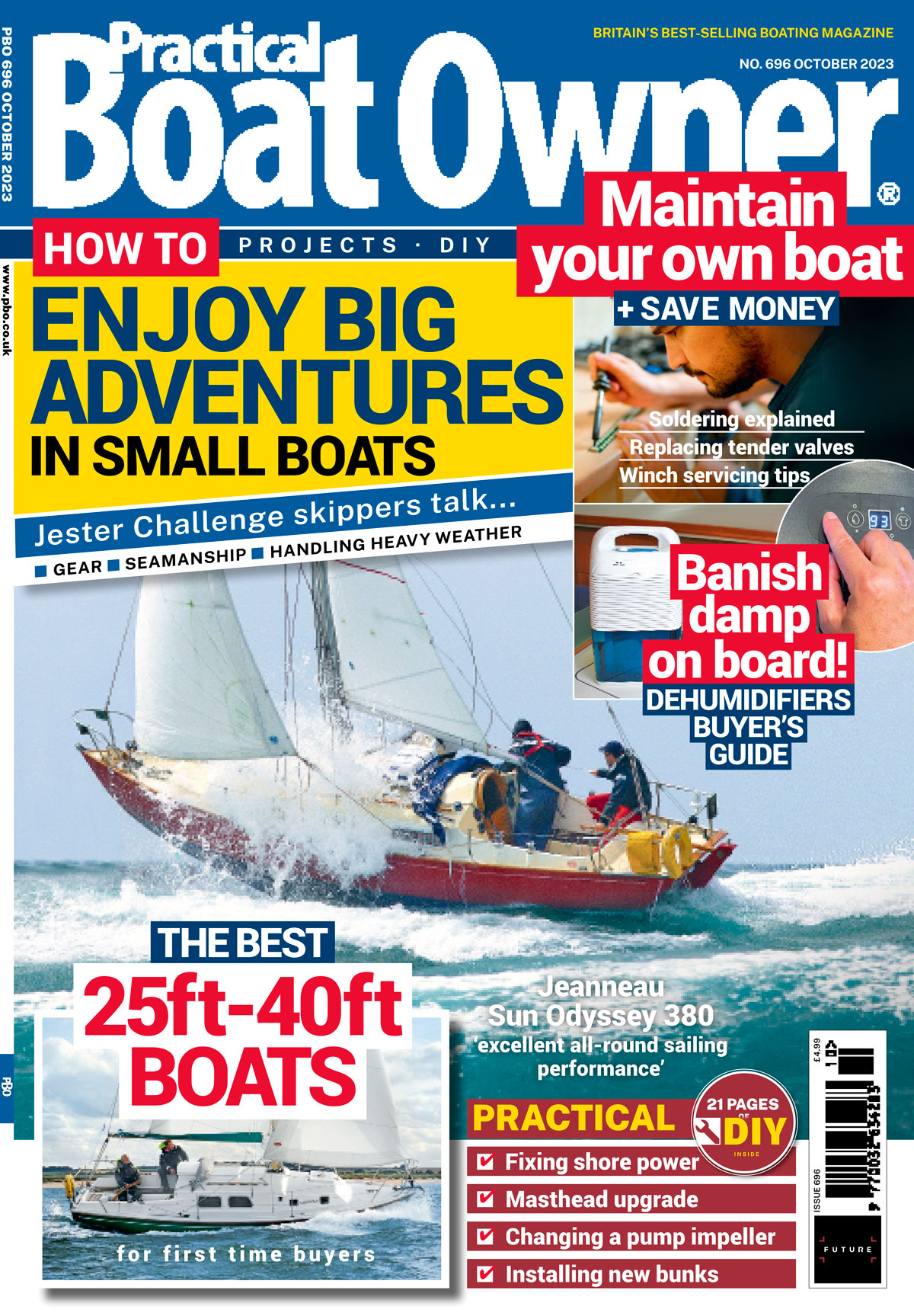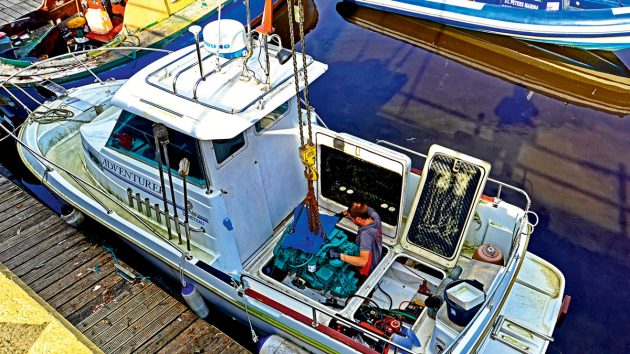Surveyor Ben Sutcliffe-Davies gives his advice on the implications to be considered when refitting or making major modifications to your boat
Boat certification: Do I need my vessel re-certified?
Firstly, if your boat was built before the inception of the Recreational Craft Directive (RCD), which came into force on 16 June 1998, then you won’t need to worry about the next few paragraphs from a compliance point of view.
Those of you who own boats built after that date need to consider what a ‘major craft conversion’ is and why we need to comply.
In 2006, the RCD was amended to include a major craft conversion clause, which covered any significant alterations to a boat’s design that may affect its essential safety.

You are unlikely to need an RCD/RCR reassessment if you are replacing components on a like-for-like basis, such as gas lines. Credit: Graham Snook/YM
In a nutshell, it stated that any modifications, which clearly change the way the boat or its systems are operated, will mean the boat will require a reassessment of its RCD certificate.
Since Brexit, the UK equivalent is the Recreational Craft Regulation (RCR).
The RCR adopted almost all of the regulations in the RCD when Britain left the EU, so the above still applies.
Boat certification: reassessment criteria
Examples of significant alterations which change the boat or its systems include:
- Attempting to increase the crew limits, the capacity of load on board or even designed category of use above the certified level.
- Removal of structural frames. I truly hope this is an obvious example; however, I regularly see bits of framing removed, sometimes for access to awkward fastenings, when carrying out surveys. Three years ago, I surveyed a boat that was being prepared for an Atlantic passage. The owner had cut the forward framing out from under the forepeak bunk arrangement to make extra room for a second water tank.
This left 7ft of the hull’s forward underwater structure unsupported; externally it flexed really easily! - Changes to the engine. An increase in hp/kW output due to a replacement engine or replacing the diesel engine with an electric motor will almost certainly need an RCD/RCR reassessment, especially when considering the battery bank that’s going to be needed. Be aware of the weight of batteries. Although there can be a bit of trade-off from motor and fuel tanks.
- Changes to gas or electrical systems. Major alterations to the gas or vessel’s normal electric systems, including swapping to lithium batteries, could all trigger the requirements of an RCD/RCR reassessment.
- Replacing fuel lines, gas hoses, rigging etc is seen as replacing on a ‘like-for- like’ basis, and therefore shouldn’t trigger the need for reassessment.
Be careful when buying a boat that has had a significant refit with upgrades above the builder’s normal fit-out.
Don’t be shy to ask the broker for verification/certification of work which has been carried out, especially in areas where RCD/RCR re-certification would be needed.
Likewise, most surveyors can also guide you.
Be aware that many marine insurance policies are dependent on compliance as well.
A classic example of this involved a boat owner who had removed the vessel’s engine and instead fitted an outboard that was too big for the strength of the transom laminate and framing.
I’ll leave the rest to your imagination, but unsurprisingly, the owner was left severely out of pocket!
Continues below…
Lithium boat batteries: 12 of the best options tested
Boat owners have long relied upon the lead-acid battery to start their engines, run electric lights and, these days, to…
Best boat cooker: 10 alternative options for gas-free cooking
Gas cookers used to be the standard choice on almost every boat, but there are good reasons why they are…
Restoring a boat? Beat the restoration blues and get back to work today
Procrastination is the art of busily doing nothing while another part of you gets really disappointed about it. I’m a…
How to choose the right project boat
How do you distinguish a real bargain boat from one that’s not worth restoring, even if it’s free? Rupert Holmes…
The UK-approved body for verification is HPi Verification Services Ltd (HPiVS), and it has a comprehensive website highlighting the need for compliance.
Before starting any major refit or alteration to your boat, I would advise that you look through HPiVS’s Frequently Asked Questions page on their website.
On a personal note, I’m thankful my S&S 34, Chianti, was built in 1980 and therefore well before the introduction of the rules.
I enjoyed putting a new engine in her, and replacing the gas system with a diesel hob without any stress!
Enjoyed reading Boat certification: Do I need my vessel re-certified? 
A subscription to Practical Boat Owner magazine costs around 40% less than the cover price.
Print and digital editions are available through Magazines Direct – where you can also find the latest deals.
PBO is packed with information to help you get the most from boat ownership – whether sail or power.
-
-
-
- Take your DIY skills to the next level with trusted advice on boat maintenance and repairs
- Impartial in-depth gear reviews
- Practical cruising tips for making the most of your time afloat
-
-








